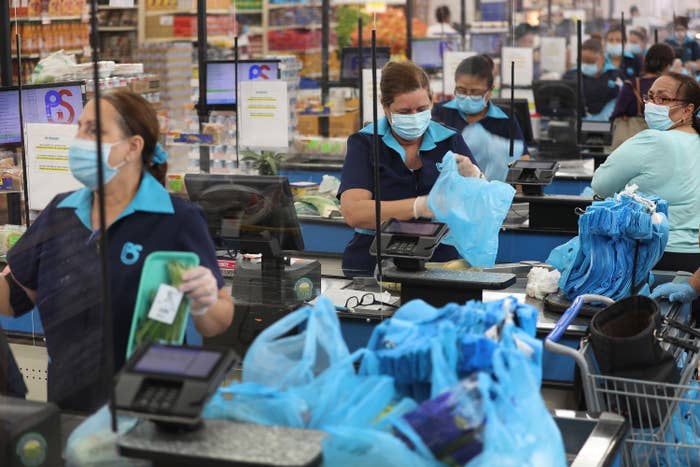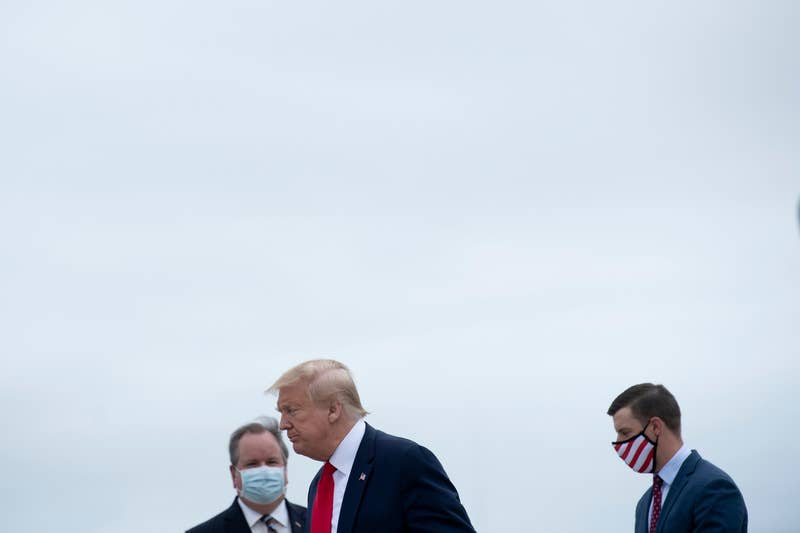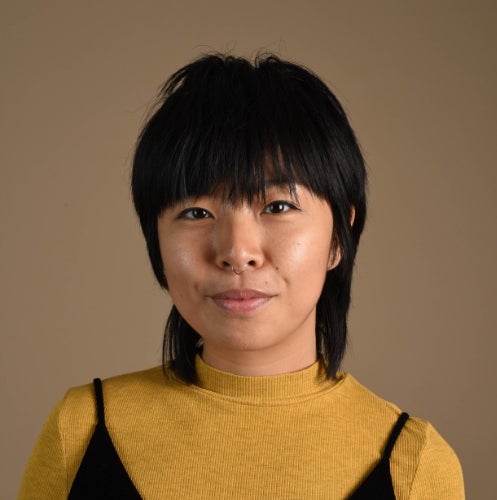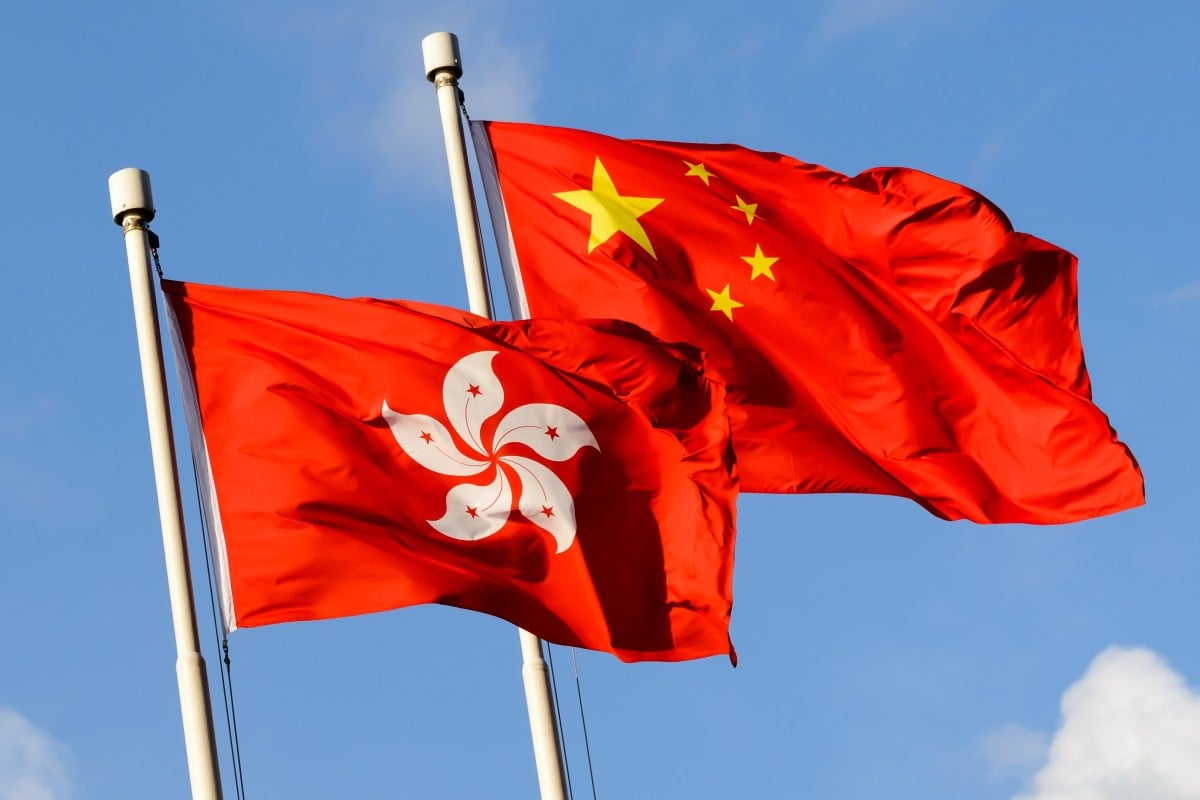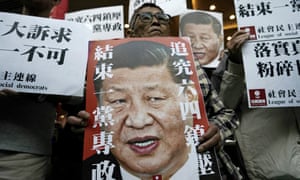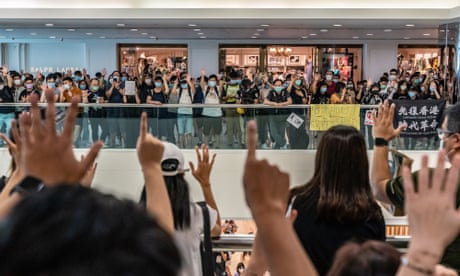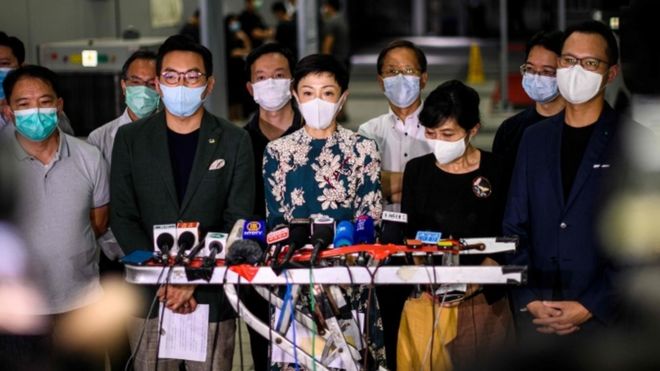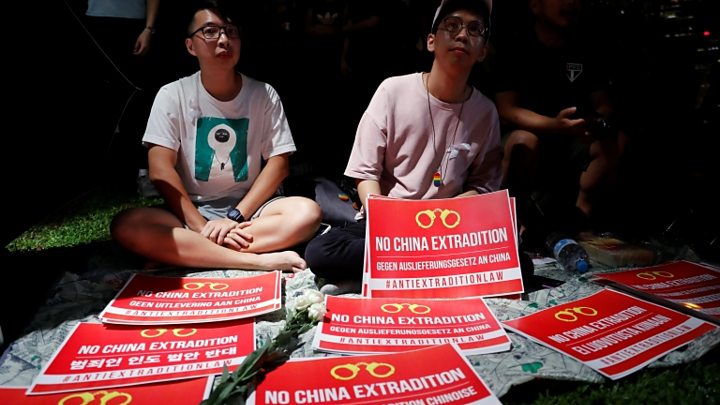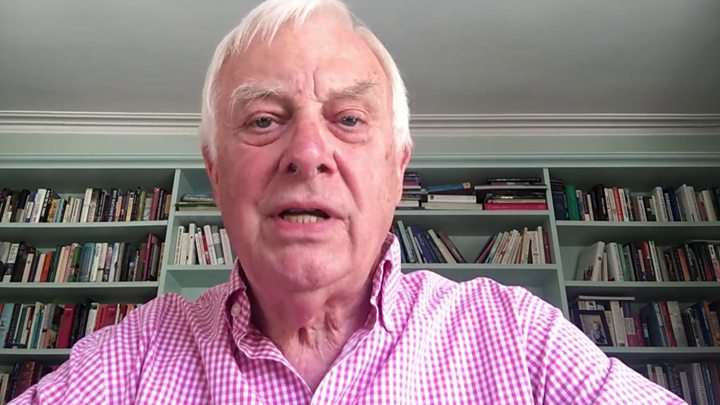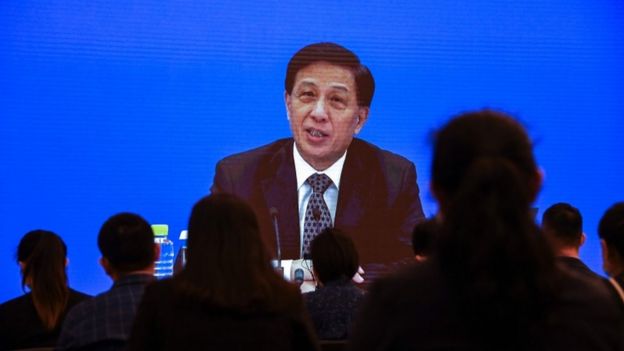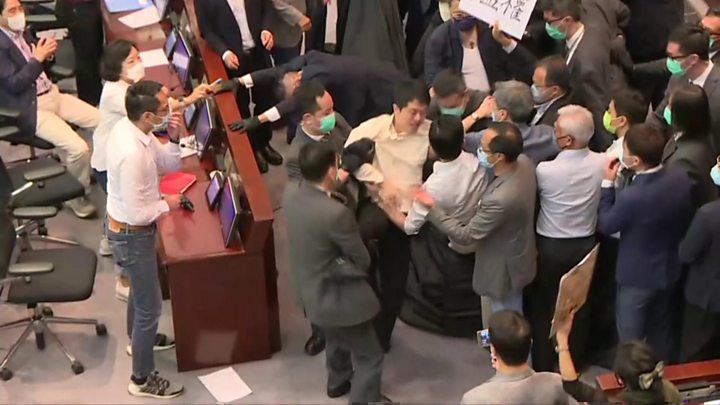Amir Sahragard hoped for safety in Australia but ended up in a brutal offshore camp. He is still dealing with the trauma as he starts a new life.
BUZZFEED NEWS Posted on May 20, 2020
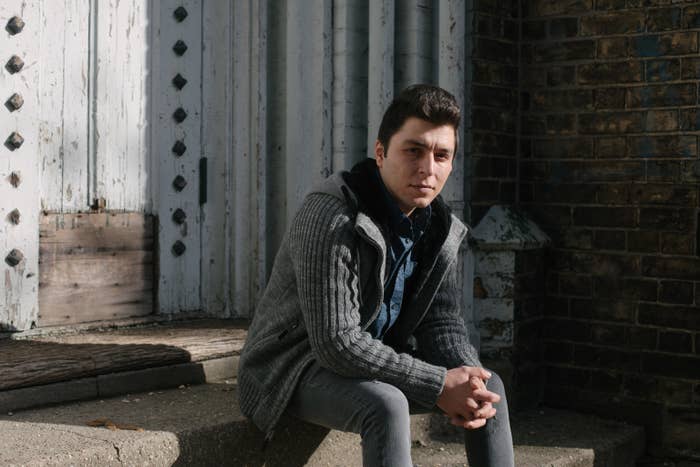
Chloë Ellingson for BuzzFeed News
Amir Sahragard recently arrived in Canada after six years at the Papua New Guinea detention centre.
Amir Sahragard thinks he would be dead if it weren’t for the group of civilians who sponsored his passage to Canada after six long and brutal years in migrant detention centres in Papua New Guinea.
“The only thing that [kept] me alive in the last two years was this,” he told BuzzFeed News.
“I've been mentally and physically sick and the only reason that I didn't kill myself or that I'm still alive was this sponsorship process, because I didn't have another option.”
Sahragard is one of thousands who tried to claim refugee status in Australia but were instead routed to offshore detention centres in the Pacific because of their mode of transport: boat. Under this harsh regime, people like Sahragard who sought safety in Australia by sea were instead subjected to brutal conditions and years of limbo.
But Sahragard is also one of the lucky ones. He found a way out, and not just to another centre on the Australian mainland, but to Canada — where refugees shunned by Australia are increasingly placing their hopes of freedom.
Sahragard, now 28, began his long journey in 2013 when he fled his home country of Iran. Anxious about his family, who remain in Iran, he won’t talk about why he left the country.
His next stop was Indonesia, where he boarded a ship he hoped would bring him to Australia, where he could declare refugee status. The ship was filled with families and other single men, some that he got to know as they waited for the ship to leave.
They were at sea for four days. “The boat was like a scary movie,” Sahragard said.
When the ship arrived at the remote Australian territory of Christmas Island, it was intercepted by the Australian Navy. Officers brought them onto the island, taking everything the asylum seekers had with them, Sahragard said.
Sahragard and his shipmates were processed, given medical checkups and new clothes, and told they’d be sent to an offshore detention centre. After being bounced around to various compounds, Sahragard said he was asked to sign a paper that would transfer him to Manus Island in Papua New Guinea. At the time, Australia was paying the government of Papua New Guinea to take migrants and hold them in a facility on the island.
Sahragard didn’t sign the paper, but was sent “by force”, he said. Guards put him on a bus, then a plane, and half a day later he landed at the Manus Regional Processing Centre.
The scene there, Sahragard said, was “the worst thing that I [have] ever seen”. Some people were ill, others didn’t have clothes, and everyone was terrified.
“I was alone and like 21 years old and I'd never seen things like that and everything was by force, so I didn’t have any choice,” he said.
He was put in a small room with three other men and two bunk beds, in a compound called Foxtrot. Again, he was shuffled around, sometimes to tents, sometimes to facilities that lacked air conditioning and were sweltering in the tropical environment. Eventually, he landed at a compound called Mike. It would become his home for four years.
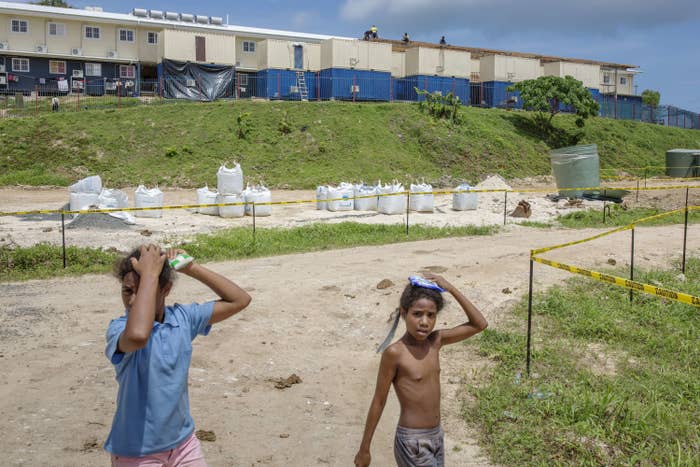
Jonas Gratzer / Getty Images
Children bypassing the barracks where the asylum seekers are living on Manus Island, February 2018.
At Mike, detainees were permitted to use the internet once and have two 10-minute phone calls per week. They had access to laundry and a mess hall, but were also subject to abuse and violence by locals and guards, Sahragard said.
In February 2014 a riot broke out. A friend of Sahragard got hit in the face with a stone and his eyes were bleeding. With the lights out, Sahragard tried to take care of him and wait for a medical response. It was chaos. It was hard to tell who was in the fray — locals, police, guards — and he distinctly remembers the smell of the bullets being fired. Another friend was shot in the buttocks.
After the chaos, the detainees were gathered outside, he said, and beaten.
“They beat people with whatever they had. They had rods, iron, everything like that,” he said. “They were just assaulting and beat[ing] people and when they gather us in the yard they said ‘you can't remain in our country, this is our country, this we run it and you can't do something that we don't want you to do’.”
For a month after, the detainees lived in the mess hall without access to phones or the internet, according to Sahragard. When he finally returned to his room, he saw a bullet hole that went straight through two walls.
At this point, he wasn’t sleeping, and his days were filled with paranoia, stress and the agony of not being able to do anything or make any decisions for himself. He was also shedding pounds and getting dangerously underweight.
They were not being fed properly, he said, and nobody was cleaning the compound. Detainees were continuing to rebel with hunger strikes.
In 2016, the PNG Supreme Court declared the facility illegal. Detainees were suddenly able to sign out for the day and leave the compound. They could shop in Lorengau or swim in the ocean, but it wasn’t any safer outside. The locals were hostile to the migrants and would rob and assault them, leaving some people with long-term neurological injuries, he said.
Soon he was transferred to Hillside Haus, another facility on the island. This one had hot showers — a luxury Sahragard didn’t even realise he’d missed.
“It was like rich that I could have hot water for shower. It's really funny when I think about it but it was something that I really was missing,” he said.
In all this time, there had never been a glimmer of hope of getting out. Sahragard clearly wasn’t going to make it to Australia, and even the NGOs like UNHCR, Red Cross and Amnesty International that were on the ground in PNG hadn’t been able to help him get out. He had not applied for refugee status in PNG, for fear he would be stuck there forever if the claim was approved. But remaining as an asylum seeker presented a huge issue: he was not allowed to apply for resettlement in the United States under the refugee swap deal struck in 2016.
Finally, in 2017, Sahragard heard of a Syrian refugee who made it to Canada through a private sponsorship program. In Canada, a group of citizens can raise funds to bring a refugee to the country and provide settlement assistance when they arrive. He managed to connect with volunteer refugee advocates who were eager to help him.
In 2018 he submitted his application and began the long waiting process to get approved. At that time, talking to the volunteers helping him was the only thing keeping Sahragard going
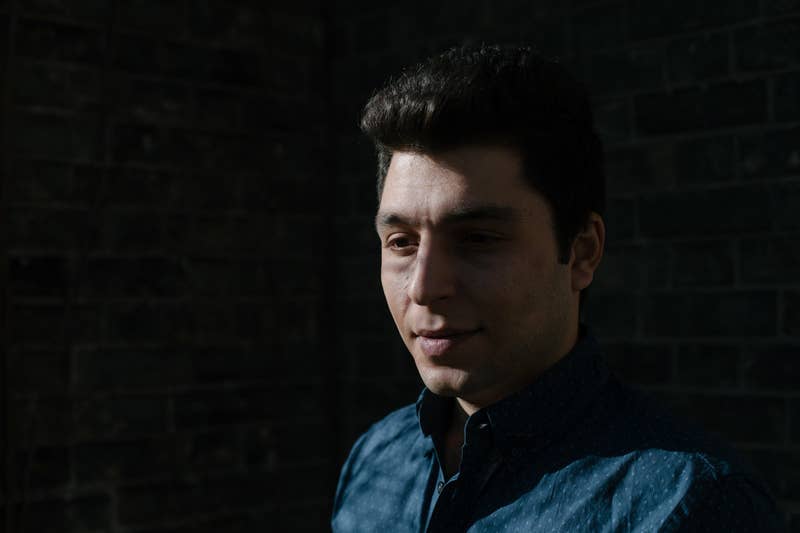
Chloë Ellingson for BuzzFeed News
“The last year [in detention] was the hardest time for me,” he said. “I was really scared and I couldn't sleep [for] months, and can't eat, and it was the worst time.”
Fifteen months passed. Then, Sahragard was told he had to get a medical checkup, and he thought he might finally get out. He was approved for travel, landing in Brisbane before being escorted onto a Canada-bound plane by Australian immigration enforcement.
Even when Sahragard saw the travel documents, he still couldn’t believe it was happening. The disbelief lingered through the 14-hour flight, and through his arrival at the airport, where his sponsors greeted him by draping him in a Canadian flag.
It took weeks for him to truly accept what had happened. “I thought that I still might wake up and see that I'm in Manus or I’m still in Papua New Guinea in detention,” he said.
That was in November. When he spoke to BuzzFeed News in February, Sahragard had been settling into his new life in Toronto, first staying with an Iranian family who also came to Canada as refugees, and now renting his own room. He was attending college for English and making friends, but he was still plagued by the trauma of his time on Manus.
He has continued to sleep poorly, but was recently approved for Ontario’s public health care system, where he can access a family doctor.
Sounds are still a problem, too.
“There was a fire alarm in our building yesterday which really drove me crazy,” he said. “It was really scary for me because when I hear those things or the ambulance in downtown it really gives me stress and I get really paranoid about these things because of all the experience or the memories that I have.”
It’s getting better, day by day, but it’s still hard for Sahragard to imagine a future, of any kind, in any place, after spending most of his 20s scared, alone and detained.
“I live my life in a day for now,” he said. “[The present] is the only thing that I think of for now because I really don't want to think about something that I couldn't reach. That would be really hard for me, and I've lost like six years of my life for nothing.”

Chloë Ellingson for BuzzFeed News
For others — at one time Sahragard’s peers — Canada remains a dream.
Abdolah Sheikhypirkohy also fled Iran in 2013 only to be sent to Manus Island, and like Sahragard, the 2014 riot is one of his most traumatic memories. Local police arrested him and put him in a cell with almost 40 others, including six refugees.
“They beat me up, they punch me, they hurt me, cut my lips,” he said.
Over his six years in PNG, Sheikhypirkohy thinks he lost 12 teeth. For the first few years in detention there was no dentist at all. After three years, one arrived, but they had one solution for dental problems.
“They just pull it out. Not crown or filling or root canal, nothing. Just pull out. I don’t have many teeth now. I have problem with chewing,” Sheikhypirkohy said. It was his missing and infected teeth that brought him to Australia for medical treatment in July 2019. He has been detained in a hotel in Melbourne since then.
He applied for private resettlement in Canada over six months ago. Like Sahragard, he had never applied for refugee status in PNG and could not apply to go to the US, where more than 700 people have been successfully resettled.
Sheikhypirkohy has written to Canadian prime minister Justin Trudeau three times: to tell him about the situation on Manus, to send condolences about the Canadians killed when Iran shot down a plane flying to Ukraine, and to ask him to help get his application for resettlement approved.
Trudeau’s office replied each time to tell him there was nothing they could do. His latest request was forwarded to the Canadian immigration minister, and a representative emailed Sheikhypirkohy telling him where his application was up to and explaining the process.
Sheikhypirkohy was stoked to get the replies. “Even though he said he cannot interfere in the matter...at least someone answer, replied my letter,” he said.
“I said to myself, if my application get approval, I’m sure I’m going to be in the perfect country, that cares about people. Here they just call me, ‘go back to your freaking country, boat people’.”

Jonas Gratzer / Getty Image
Karam Zahirian, another refugee seeking asylum, is seen on Manus in February, 2018.
Jafar (a pseudonym to protect his identity) has been trying to go to Canada from Nauru for the last two years. He was sceptical the plan would work at all — “in seven years, we had many news, many rumour, but nothing happen” — before hearing about the first flight to Canada.
His US application rejected, he has high hopes for Canada. “I saw on the internet about the Canadian prime minister, he is very humble. I see also Canadians, very, very good people. They are welcome to refugees, very incredible,” he said.
Sheikhypirkohy and Jafar may be waiting a while. The volunteer efforts that helped Sahragard reach Canada have ramped up. There are now dozens of people in Canada, Australia and the US organising to fill out applications, fundraise and ultimately free the men from detention. But so far, only 11 people have made it to Canada: a handful in 2015 and 2017, then eight more last year.
The process is slow: each application requires sponsors to prove they have thousands of dollars to support the refugee, and the Canadian government offers limited sponsorship spots each year. Now the coronavirus pandemic has paused resettlement in Canada entirely, though applications are still being processed.
The arduous process also means the groups helping to file the applications — Ads-Up, an Australian-North American group dedicated to helping refugees stuck on Manus and Nauru; the volunteer group Operation Not Forgotten; Canadian non-profit MOSAIC; and UNHCR — have to figure out who to prioritise. At the moment, that’s people still held offshore, those with medical conditions, and people who have no other resettlement options.
Still, the volunteers working to make it happen are committed to ending Australia’s offshore detention program.
“To get everyone off would be hundreds of submissions and millions of dollars,” said Ben Winsor, the founder of Ads-Up. “But that’s our ultimate aim.”
The softly-spoken Sahragard feels safe in Canada. But now he is dealing with a new challenge: the pandemic. His classes have moved online and the social isolation is triggering traumatic memories.
“It reminds me of the time I’ve been in detention, because it’s the same situation, I can’t do anything.”
But he’s chosen to speak out — reliving memories he’d rather not — because he hopes his friends back in Manus can get out too.
“It's really hard for me to talk about all these memories, all these things, but the only reason that I'm doing this is because I get the help, and I want them to get the help also, to have their future and save their life.”
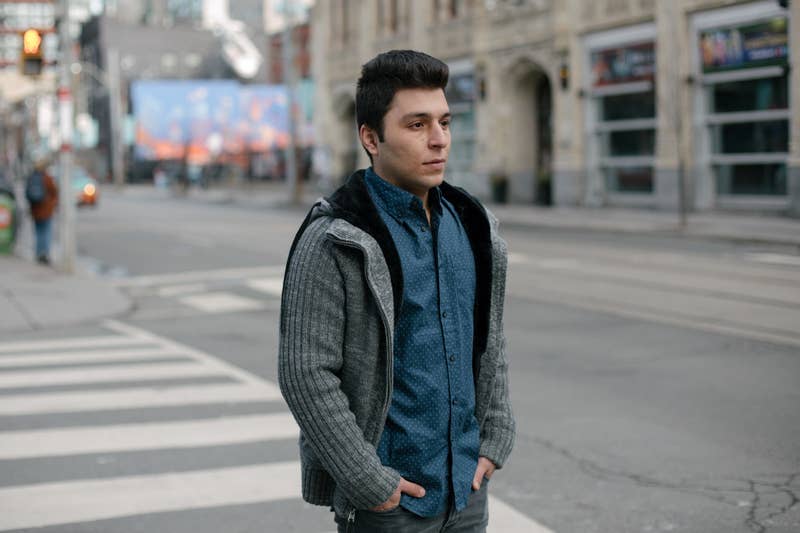
Chloë Ellingson For Buzzfeed News
The US, Struggling Under The Pressure Of The Coronavirus, Is Still Taking Refugees From Australia
Hannah Ryan · May 8, 2020
Hannah Ryan · Jan. 23, 2020
This Man On Nauru Hasn’t Eaten Fruit In More Than A YearHannah Ryan · Jan. 26, 2020
Australia Detained People On Islands For Years. Now It Wants To Ban Them From Ever Visiting.
Hannah Ryan · Aug. 22, 2019

Lauren Strapagiel is a reporter for BuzzFeed News and is based in Toronto, Canada.

Hannah Ryan is a reporter for BuzzFeed News and is based in Sydney.

Lauren Strapagiel is a reporter for BuzzFeed News and is based in Toronto, Canada.

Hannah Ryan is a reporter for BuzzFeed News and is based in Sydney.
